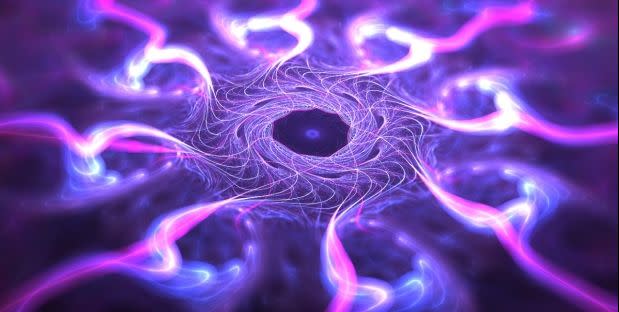Looks Like We Have a New State of Matter

A team of physicists from New York University, University of Buffalo, and Wayne State University have discovered a new state of matter, which they say has the potential to increase storage capabilities in electronic devices.
"Our research has succeeded in revealing experimental evidence for a new state of matter—topological superconductivity," says Javad Shabani, an assistant professor of physics at NYU, in a press statement. "This new topological state can be manipulated in ways that could both speed calculation in quantum computing and boost storage."
The discovery is not yet in an academic journal, but has been published in arXiv, which hosts preprints approved for posting after moderation without full peer review.
Titled "Phase signature of topological transition in Josephson Junctions," the paper is focused squarely in the realm of quantum computing. Quantum computing allows computers to make exponentially fast computations through using what are known as qubits: advances made upon the basics of computer memory, or bits.
Bits are binary, read in 1s and 0s. Qubits, though, allow for computers to read any number between 0 and 1, allowing for much faster calculations.
During this research, the team was able to witness the transition of quantum state from its conventional state to a new topological state, which is to say it took on new geometric properties. Topological states can change during everyday life as well, like when a piece of paper goes from having no rips to being ripped halfway down. They were able to study the quantum state's change by observing the energy barrier between the two states.
Within this state of transformation, scientists were able to observe what are known as Majorana particles, named after 20th century Italian theoretical physicist Ettore Majorana. The Italian scientists theorized the particles, which act as their own antiparticles, in 1937. Scientists see them as potential storage for qubits, with the ability to keep quantum information in a special computation space, safe from outside environmental noise.
The catch has always been that there's no natural storage material for these storage particles. But this new state of matter appears to be able to store Majorana particles, which could hold them. With a holding place intact, the Majorana particles could then store qubits.
"The new discovery of topological superconductivity in a two-dimensional platform paves the way for building scalable topological qubits to not only store quantum information, but also to manipulate the quantum states that are free of error," says Shabani.
Quantum mechanics is pretty complex stuff.
Source: NYU
You Might Also Like
